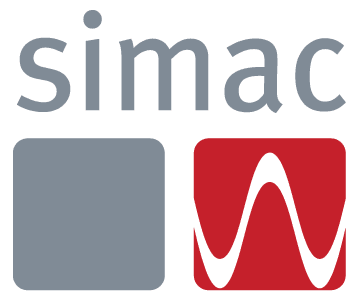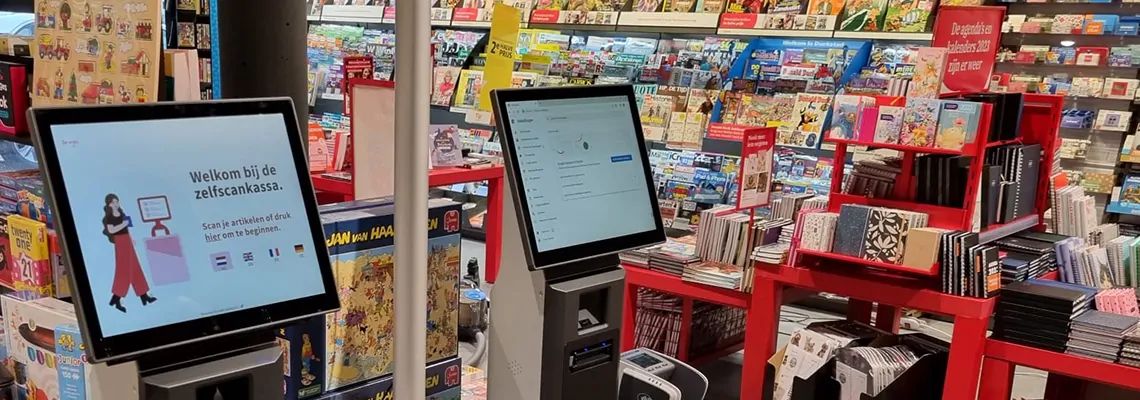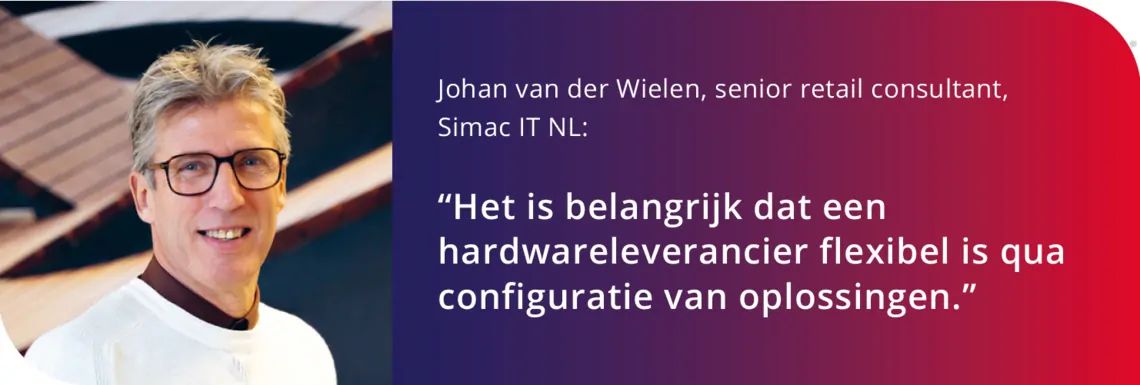Retailers want point-of-sale systems with hardware that optimally matches their unique formula. At the same time, investment and maintenance costs must be as low as possible. Hardware supplier AKAM and Simac have been finding the best solution for every retailer for years.
Every retailer has their own approach to the checkout process. “De Bijenkorf prefers a cash register system with a small customer display to protect customer privacy. HEMA prefers a larger screen so the system can also be used as a self-checkout. And Blokker wants a 17-inch screen as an information source for cashiers to facilitate upselling and cross-selling,” says Flip van de Klift, CEO of AKAM.
The fact that every retailer has different requirements and wishes strengthens Flip's conviction that a standard POS system is not sufficient.
“That's why we always try to engage in conversation with the retailer. What is their need and how can we fulfill it? With our portfolio of standard POS hardware, we build custom solutions. In fact, we deliver standard customization.”Flip van de Klift- CEO van AKAM
Third generation
Simac and AKAM have been partners since time immemorial. When a retailer knocks for a POS system, Simac looks for the right hardware. Often, this search ends in Bleiswijk, where AKAM took into use a new head office last year.
"AKAM simply delivers good products. At De Bijenkorf we just installed the third generation of cash register systems. The first generation is still running there. That is now fourteen years old. If those POS systems are removed, it's not because they are broken, but because the new ones look nicer."Johan van der Wielen- senior retail consultant - Simac IT NL
Aside from the quality, working together with a local partner is simply enjoyable. "It makes for quicker communication. And if a problem arises, we visit the retailer together to solve it," Johan says, confirming Flips’ story about customized standard solutions. "There are few parties that think along with clients to this extent and are so flexible in terms of hardware configuration."
More influence
Ensuring flexibility was one of the reasons for Flip and his partner to sell the shares to FEC, the listed Taiwanese hardware manufacturer and AKAM’s largest supplier, five years ago. “The relationship between manufacturer and retailer will only become more intensive in the coming years. Hence the choice to join a manufacturer. Now that we are part of it, we have much more influence on product development. With FEC, we are best able to build custom solutions based on standard hardware components.”
Flip points to the trend in the international market for POS systems to deploy widescreen displays. “While we in the Netherlands are still largely standardized on the 4:3 displays. The Dutch POS solutions are based on that. We just continue to deliver those displays. We channel the requirements and wishes of retailers towards the product developers of FEC. We translate those into technical specifications. You could say that we have developed the latest generation of POS hardware. And also the generation before that.”
Best-in-class
The old established names, especially supermarket chains in the international POS market, offer solutions where hardware and software are integrated. Johan and Flip no longer believe in this.
“With that, you as a retailer commit yourself to a very specific solution. As Simac we can offer the best of both worlds. We can combine the POS software from Dutch parties - which is just very good - with different hardware. We combine these components and take care of installation, management and maintenance at home and abroad."Johan van der Wielen- senior retail consultant - Simac IT NL
Flip does not see AKAM making the move to software - not now and not in the future either. “I am a true best-of-breed believer. Don't forget that we also supply hardware to restaurants, sports canteens, and cinemas among others. We can never meet the software needs of all those companies as specialists can. Just fulfilling the hardware part is challenging enough. We want to be the expert in that field, not in the realm of software.”
Pin-on-glass
Since the outbreak of the coronavirus, self-checkouts have become extremely popular. At the moment, PIN-on-glass is on the rise: paying with a mobile device. Many retailers are exploring its possibilities. These are not always clear, as Johan knows. “It makes quite a difference whether you want to use this technology in a hardware store or in a clothing store. The sector must be suitable for PIN-on-glass. Paying with a mobile device is fun, but what do you do when the security of the clothes needs to be disconnected? And where do you fold the clothes? HEMA is currently running a pilot with PIN-on-glass. They are very enthusiastic.”}
With over thirty years of experience, Flip dares to say that technological developments often do not progress as quickly as expected. Indicative are the reports that the rollout of Amazon Go in the United Kingdom is stuttering. Thanks to hundreds of cameras and sensors, consumers can leave these stores without having to scan their groceries or make a payment. It seems that the costs of technology and management are still too high to make this concept profitable in practice.
Business case
Retailers talk progressively, but often act conservatively, says Flip. “Take an innovation like RFID, one of the most beautiful technologies ever developed for retail. With it, in theory, you can load your shopping cart and just walk out of the store. But what is the business case? A quarter century after its introduction, RFID is still rarely used in stores.
Flip advises to always prioritize the business model. “Don't let technology lead, because you can lose out on that. The business model determines who or what you are as a retailer, not the latest innovation. But of course you have to embrace and test innovation. You can't rule anything out in advance.”








